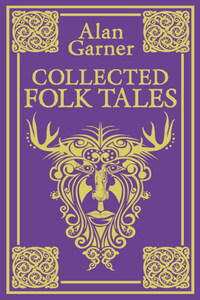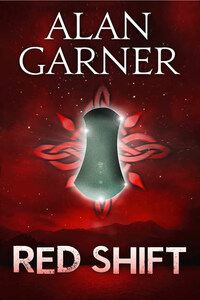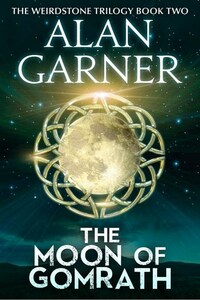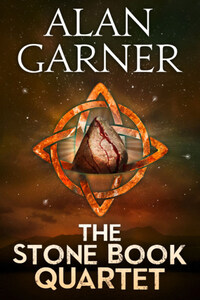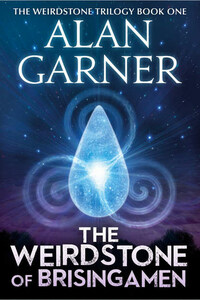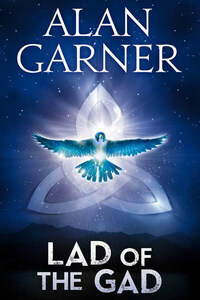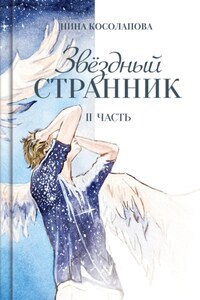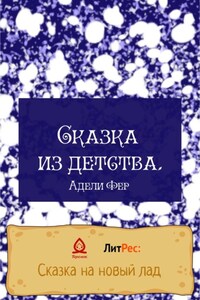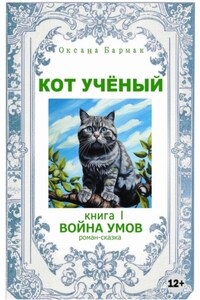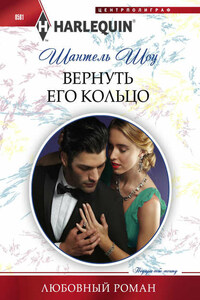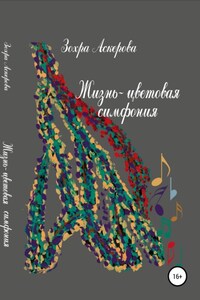Title Page
Dedication
Prayer
Introduction
Gobbleknoll
Shick-Shack
Vukub-Cakix
Tops or Bottoms
The Voyage of Maelduin
The Fort of Rathangan
Willow
Maggoty’s Wood
Edward Frank and the Friendly Cow
Yallery Brown
Moowis
The Lady of the Wood
A Voice Speaks from the Well
Bash Tchelik
Iram, Biram
The Goblin Spider
To the Tengu Goblins and other Demons
The Secret Commonwealth
The Piper of Shacklow
The Adventures of Nera
The Green Mound
A Letter
Halloween
Great Head and the Ten Brothers
Faithful John
The Trade that No One Knows
Jack and his Golden Snuff-Box
A Charm against Witches
Tarn Wethelan
Mist
Asrai
Hoichi the Earless
The Breadhorse
Ramayana
The Island of the Strong Door
The Smoker
R. I. P.
Wild Worms and Swooning Shadows
Assipattle and the Mester Stoorworm
The Barguest of Nidderdale
Loki
Baldur the Bright
The Flying Childer
Father, Wait for Me
Glooskap
The Wonderful Wood
Wae’s Me
The Green Mist
Other Books by Alan Garner
Copyright
About the Publisher
“Believe the fairy tales. What were the fairy tales, they will come true.”
That is a common beginning to Russian stories, and it is a wise one. We have always tried to make sense of the natural forces in the world and of the hidden forces in ourselves. Sometimes we give them shapes as gods and devils and spirits; sometimes we make them into animals; sometimes we subject them to rules, which we call magic. And I would call much of magic “the science we have not discovered yet”.
Four hundred years ago, a man could write in England: “Our mothers maids have so terrified us with an ouglie divell having hornes on his head, fier in his mouth, and a taile in his breache, eies like a bason, fanges like a dog, claws like a beare, and a voice roring like a lion, whereby we start and are afraid when we hear one cry Bough; and they have so fraied us with bull beggers, spirits, witches, urchins, elves, hags, fairies, satyrs, pans, faunes, syleens, kit with the cansticke, tritons, centaures, dwarfes, giants, imps, calcars, conjurers, nymphes, changelings, Incubus, Robin good-fellowe, the spoorne, the mare, the man in the oke, the hell waine, the firedrake, the puckle, Tom thombe, hob goblin, Tom tumbler, boneles, and such other bugs, that we are afraid of our own shadows.”
Little has changed since then. We may have lost our faith in the terror of the cornfield and the greenwood, but we still need terror. Boneles and such other bugs now ride flying saucers, and it is in the galaxy, not the churchyard, that menace lies.
We need to be scared. It is healthy and good for us. But not all traditional stories are about confronting fear. They can show us our humanity and convey a sense of the numinous.
Traditional stories may be myth, legend, fairy tale or folk tale. Each of these terms has a different and technical meaning; but this book is not technical. It is for anyone that loves a story, whether the story be anecdote or epic.
I believe that story is, at root, universal; though it changes with, and benefits from, its cultural trappings. To test this I have taken some stories out of their context and put them into the words of my own family, especially into the words of my grandfather, Joseph Garner, who was a smith. In a village the glow of the dark smithy is, or was, a place of mystery, a boundary between worlds. What was spoken round the anvil was not spoken in the street. So, having selected and compared written texts, I took some of them back to my childhood and said: Please, Grandad, tell me this story. And I listened, and wrote what he told me. I did it for more than one reason.
Folk tales once belonged to everyone, though not everyone was qualified to tell them, and it is a comparatively recent assumption that they are for children only.
In this selection I have tried to get back, through the written word, a sense of the spoken. These stories, even the most formal, are to be heard as well as seen.
During the seventeenth and eighteenth centuries, in Britain, traditional stories of the fantastic and the supernatural came under attack: directly from the Church, for being either lies or the work of the Devil; indirectly from the educated and the literate, who followed the new sceptical materialism; and incidentally from the growth of towns and cities, which obliterated the oral traditions that a settled rural community may sustain, but an urban society of strangers does not. The result was, by the middle of the nineteenth century, that stories that have existed in all times and in all places, as the common property of all, had been removed from their tellers and their audience and delivered up to child-minders and to scholars.
In the nursery, printed folk tales became tracts to support authority, with moral lessons inserted and the wilder elements tamed so that children should not be exposed to unseemly events. And in the academic world, the duty of the folklorist was to rescue and record the stories that had survived, without concern for a popular audience. On the one hand, the texts were made literary and trite; and on the other, remote and unattractive, since the accurate transcription of spoken words carries with it little of the performance, in which the vitality lies.
